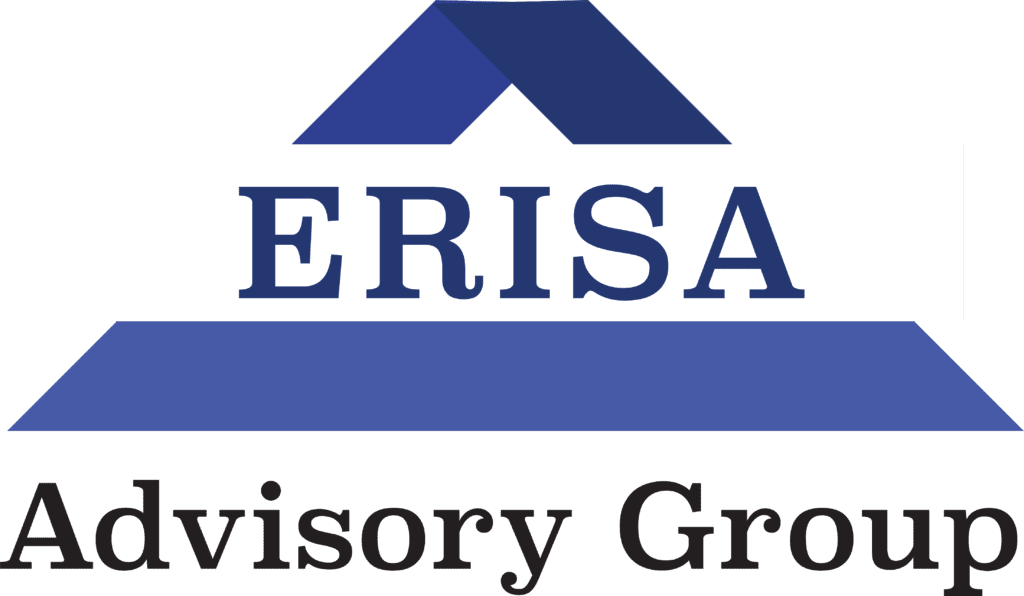A deeper dive into the terms every plan fiduciary should understand.
1. ERISA (Employee Retirement Income Security Act)
A federal law that sets standards for most private-sector retirement and health benefit plans. It includes rules on fiduciary responsibility, reporting and disclosure, plan participation, vesting, and funding.
2. Fiduciary
A person or entity with discretionary control over plan management or assets, or who provides investment advice for a fee. Fiduciaries must act solely in the interest of plan participants with the care of a prudent expert.
3. Named Fiduciary
The individual or entity explicitly designated in the plan document as having primary responsibility for plan operation and oversight.
4. Functional Fiduciary
Anyone who exercises discretionary authority or control over a plan, regardless of title. This includes those making investment decisions or selecting plan service providers.
5. Plan Sponsor
The employer or organization that establishes and maintains the plan. Sponsors often appoint fiduciaries but may also have fiduciary responsibilities themselves.
6. Plan Administrator
A person or group identified in the plan document as responsible for filing reports, disclosures, and managing plan operations. This may be the employer or a third party.
7. SPD (Summary Plan Description)
A plain-language summary of the plan’s rules, benefits, and participant rights. Required under ERISA and must be regularly updated and distributed.
8. SMM (Summary of Material Modifications)
A notice sent to participants when significant changes are made to the plan or SPD. Must be distributed within 210 days after the end of the plan year in which the change was adopted.
9. SAR (Summary Annual Report)
A summary of the Form 5500 that must be provided annually to participants, detailing plan funding and financial activity.
10. Form 5500
An annual report filed with the Department of Labor and IRS that discloses financial, operational, and compliance information about the plan.
11. Discretionary Authority
Control or decision-making power over plan management, benefits, or assets — triggering fiduciary responsibility.
12. Investment Policy Statement (IPS)
A document that guides investment decision-making for the plan. Not legally required under ERISA, but considered a best practice and a key defense in the event of litigation.
13. 404(c) Compliance
A provision allowing plan fiduciaries to limit liability for participants’ investment decisions, if the plan meets specific criteria related to investment choice, education, and control.
14. 408(b)(2) Disclosure
Requires plan fiduciaries to receive and understand disclosures from service providers about fees, services, and potential conflicts of interest — essential for evaluating reasonableness.
15. Reasonable Fees
Fiduciaries must ensure that fees paid to service providers are “reasonable” in light of the services provided. This typically requires benchmarking or running RFPs.
16. RFP (Request for Proposal)
A formal, documented process to evaluate service providers based on fees, performance, and capabilities. Demonstrates prudence and supports fee reasonableness. See our detailed guide on RFP here.
17. Fiduciary Breach
Failure to meet ERISA fiduciary standards, such as acting in participants’ best interest, diversifying investments, or following plan terms. Can lead to personal liability and DOL enforcement.
18. Bonding Requirements
ERISA requires that every person who handles plan assets be bonded (usually at least 10% of the plan’s assets, up to $500,000), to protect against theft or fraud.
19. Co-Fiduciary Liability
If you’re a fiduciary, you may be liable for the breaches of another fiduciary if you knowingly participate in or fail to remedy the breach.
20. Settlor vs Fiduciary Functions
Settlor functions (like creating or amending the plan) are business decisions and not subject to fiduciary rules. Fiduciary functions involve plan administration and require compliance with ERISA standards.
21. Safe Harbor
Provisions (e.g., in 401(k) plans) that automatically satisfy certain ERISA requirements, reducing compliance risk. For example, Safe Harbor 401(k)s are exempt from certain nondiscrimination testing.
22. Non-Qualified Plan
A retirement plan not subject to ERISA’s funding and participation rules (e.g., deferred compensation plans for executives). Offers flexibility but limited protections.
23. MEWA (Multiple Employer Welfare Arrangement)
An arrangement where multiple employers pool together to offer health or welfare benefits. MEWAs are subject to complex ERISA and state regulations.
24. Plan Restatement
A full rewriting of the plan document to incorporate all amendments and regulatory updates. Required periodically (e.g., every 6 years for pre-approved retirement plans).
25. Self-Correction Program (SCP)
A program offered by the IRS allowing plan sponsors to correct certain compliance failures without penalty, if caught and fixed early.
